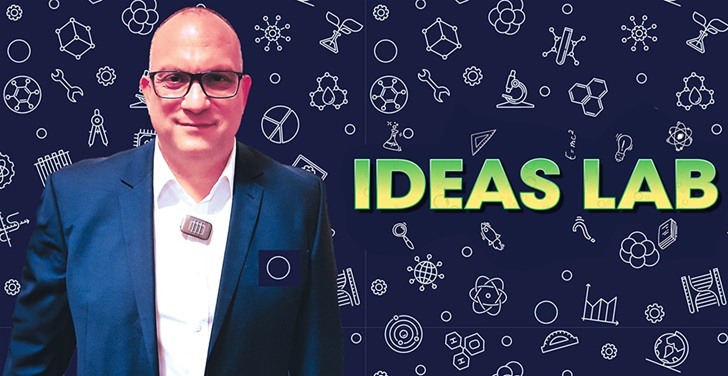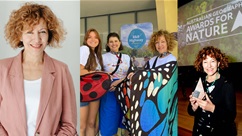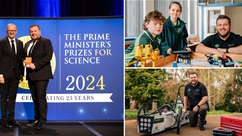KZ: Hi George! How would you explain your work as a STEM Coordinator at Marble Bar Primary School?
G: My work at Marble Bar Primary School involved combining Two-way Science (First Nations cultural knowledge) and 21st century technologies (Western pedagogies). This was done to highlight the Nyamal language and east Pilbara culture using drone aviation, virtual reality and local First Nations art.
KZ: What inspired or influenced your decision to lead an integrated STEM program that included First Nations culture and knowledge? How was the local Nyamal language incorporated into the school’s STEM program?
G: My parents are of Greek descent and learned English as a second language. Growing up, I spoke both Greek and English. Moving to Australia, I lived in a few First Nations communities in the Goldfields and the Pilbara. I found the diverse languages spoken in the communities rich in culture and tradition. I did some research into the Nyamal language of the East Pilbara and discovered that it was an endangered language with less than 10 speakers worldwide. This prompted me to incorporate the language into the integrated STEAM program, thereby preserving Nyamal for future generations.
KZ: What has been the personal highlight of your career so far?
G: The personal highlight of my career was winning the PM Prizes for Excellence in Science Teaching in Primary Schools. Through this award, the culturally responsive STEAM work with my students was showcased and acknowledged on a national level.
KZ: Did you study any subjects or courses, or have any hobbies as a that gave you skills you use at work?
G: As a child, my brother and I loved making model airplanes, and I was always interested in history and technology. We also loved playing video games. Working with culturally responsive STEAM has allowed me to combine my interests in History and Technology.
Read our Ideas Lab interview with George Pantazis in the September 'Games Fest' issue of K-Zone, on sale now!










Comment Now!